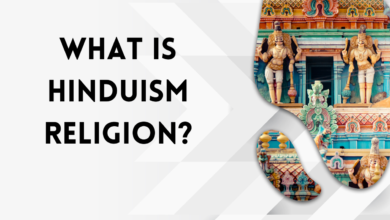
What is Islamism?
Islamism, also known as political Islam, is a political and religious ideology that seeks to establish Islamic law (Sharia) as the governing framework of a state. It is a socio-political movement within Islam.

Introduction
Islamism is a complex and multifaceted political and religious ideology that has gained significant attention in recent decades. Often misunderstood and misinterpreted, Islamism encompasses a wide range of beliefs and practices within the broader Islamic world. This article aims to provide a comprehensive overview of what Islamism is, its historical roots, key components, and its implications on both Islamic societies and the international stage.
Defining Islamism
Islamism, also referred to as political Islam, is a socio-political movement within Islam that seeks to establish Islamic law (Sharia) as the foundation of a state’s legal system and governance. It is important to distinguish between Islamism and the religion of Islam itself. Islam is a monotheistic faith followed by over a billion people worldwide, while Islamism is a specific political ideology within the broader Islamic tradition.
Also check.
- What Does Allah Look Like?
- Who is the Wessiah in Islam?
- What is Wudu in Islam?
- What is Jihad in Islam?
- What is Nikkah in Islam?
Key Components of Islamism
- Sharia Law: Islamists advocate for the implementation of Sharia law as the primary legal framework for governance. Sharia is a system of Islamic jurisprudence derived from the Quran and Hadith (sayings and actions of the Prophet Muhammad) and covers various aspects of life, including family, criminal, and economic matters.
- Islamic State: Many Islamists aspire to establish an Islamic state where Sharia is the supreme law. The concept of an Islamic state can vary significantly, from a theocracy with strict interpretations of Sharia to a more moderate and inclusive model that accommodates pluralism.
- Reform or Revolution: Islamists often debate whether change should be pursued through peaceful means, such as participation in democratic processes, or through violent means, including armed resistance. This distinction has led to different factions and movements within Islamism.
Historical Roots of Islamism
The roots of Islamism can be traced back to the late 19th and early 20th centuries when Islamic societies were undergoing significant political and social changes. Some key historical developments include:
- Colonialism: The colonial period in Muslim-majority countries disrupted traditional governance structures and led to a sense of cultural and political disorientation. This prompted a search for identity and a revival of Islamic values.
- Modernization: The process of modernization in Islamic countries introduced secular ideas and institutions, leading some Muslims to perceive these changes as threats to their religious and cultural heritage.
- Ideological Influences: The writings and ideas of Islamic reformers like Sayyid Abul Ala Maududi and Hassan al-Banna played a crucial role in shaping contemporary Islamist thought. They advocated for the establishment of Islamic states based on strict interpretations of Sharia.
Implications of Islamism
- Domestic Politics: In countries with significant Islamist movements, such as Egypt, Turkey, and Iran, Islamism has a profound impact on domestic politics. It can lead to shifts in governance structures, policies, and the role of religion in public life.
- Global Affairs: The rise of Islamist extremist groups, such as Al-Qaeda and ISIS, has had a significant impact on international security. These groups have carried out acts of terrorism with global repercussions.
- Human Rights: The implementation of strict interpretations of Sharia in some Islamist states has raised concerns about human rights, particularly in the areas of women’s rights, religious freedom, and freedom of speech.
Conclusion
Islamism is a diverse and complex ideology that encompasses a range of beliefs and practices within the Islamic world. It has historical roots in responses to colonialism and modernization, and its implications extend from domestic politics to global affairs. Understanding Islamism requires a nuanced approach that recognizes the diversity of Islamist movements and their varying goals, methods, and impacts. It is essential to engage in constructive dialogue and promote peaceful solutions to address the challenges posed by Islamist ideologies.

FAQs
What is Islamism?
Islamism, also known as political Islam, is a political and religious ideology that seeks to establish Islamic law (Sharia) as the governing framework of a state. It is a socio-political movement within Islam.
How does Islamism differ from Islam?
Islam is a monotheistic religion followed by Muslims, while Islamism is a specific political ideology within the broader Islamic tradition. Islam encompasses faith, spirituality, and rituals, whereas Islamism focuses on the application of Islamic principles in politics and governance.
Are all Islamists extremists or terrorists?
No, not all Islamists are extremists or terrorists. Islamism is a diverse movement with a wide range of beliefs and practices. While some Islamist groups have resorted to violence, many others participate in peaceful political processes.
What are the key components of Islamism?
The key components of Islamism include advocating for Sharia law, striving to establish an Islamic state, and debating the means of change, whether through peaceful reform or revolutionary methods.
Who are some influential figures in the development of Islamism?
Prominent figures in the development of Islamism include Sayyid Abul Ala Maududi, Hassan al-Banna, and Ruhollah Khomeini, among others, who have written extensively on the subject.
What historical events contributed to the rise of Islamism?
The rise of Islamism can be traced back to historical factors such as colonialism, modernization, and the perceived erosion of Islamic values in Muslim-majority countries.
How does Islamism affect domestic politics in Muslim-majority countries?
Islamism can have a significant impact on domestic politics by influencing governance structures, policies, and the role of religion in public life. It often leads to debates on the balance between religious and secular authority.
What are the global implications of Islamism?
Islamism has global implications, primarily due to the rise of extremist groups like Al-Qaeda and ISIS. Their acts of terrorism have had significant consequences for international security.
Do all Islamist movements seek to impose strict interpretations of Sharia law?
Not all Islamist movements seek to impose strict interpretations of Sharia. Some advocate for more moderate and inclusive models of governance that accommodate pluralism and diverse interpretations of Islam.
What are the human rights concerns associated with Islamism?
Human rights concerns associated with Islamism include issues related to women’s rights, religious freedom, freedom of speech, and the potential for theocratic governments to curtail individual liberties.




